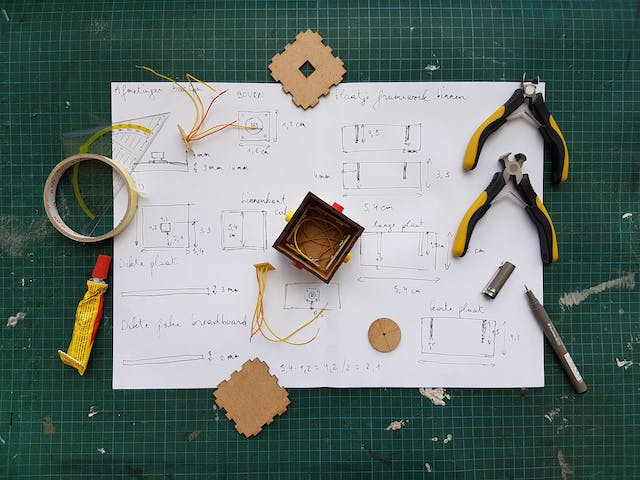There is no one that was born with the skills of a successful tradesman. It takes hard work to be good at something. You might have stumbled on a new hobby that involves building and construction. Most DIY projects will start small. Before you know it, your neighbors could be calling you to do help with washing the exterior of the house or replacing the flooring in the kitchen. There is a lot of information for anyone that is just starting out and that is why we’ve compiled these useful tips that will come in handy if you’re a newbie.
Research
You’ll first need to know what you’re getting yourself into. It doesn’t matter if it is a kitchen or bathroom renovation, research will be key to the success of the project. There will be steps that are required, materials to be bought, and timeframes to be accounted for. The research process could seem overwhelming but it will help in smothering things out. You can borrow inspiration from companies such as JD Major Decorating if you’re looking for ideas on how to decorate your house.
Budget
It will obviously be a bad idea to go out shopping without knowing how much you can afford to spend. Depending on the nature of the project, you could be limited in terms of materials. A full renovation will not come cheap. When working with a tight budget, you’d want to make sure that the most important elements are being prioritized. Even simple tasks could turn out to be more expensive than you’d already imagined. Having a budget is important because you have a clear picture of what you’re working with.
Equipment
You don’t want to take shortcuts when it comes to equipment. You might have to work twice as hard without the necessary gear for the job. The equipment will also have a bearing on the quality of the project. Depending on the nature of the project, you might not have any other option but to buy specialized tools and equipment.
Know Your Limits
There are some things that are beyond your limits and it is imperative to know what you can’t do. If the repairs have anything to do with electrical work, you’re better off calling an experienced electrician. The same will apply to structural problems with the house. You don’t want to put your family at risk by attempting a DIY repair that is beyond your scope.
Health and Safety
All tools and products will have safety instructions. Make sure to go over them whenever you’re working to avoid any hazards while on the job. Protective clothing is inexpensive and will go a long way in ensuring that you’re safe whenever you’re working on a DIY project.
Tools to Buy
It will be tempting to buy all kinds of tools when you’re just starting out. Not only will you not need them but will also be wasting money. Most DIY enthusiasts have been able to accumulate their tools collection because of a need. There is no reason why you should be buying a lot of tools when you’re just an occasional handyman who will step in when there are no other options.
Start Small
Your first DIY project doesn’t have to be complicated. It could be as straightforward as painting your room. When you’ve been able to gauge the results, you’ll identify the areas that need improvement. When you start small, you’ll be avoiding disappointments that come with a failed project. You will also not have to worry about spending too much money.
Take Your Time
Don’t rush to finish a project just for the sake of it. When you actually start the DIY project, you’ll notice that it is likely to take longer than you originally anticipated. A job that is half complete is just as good as one that was not done. It is therefore important that you’re allowing for adequate time for the project to be complete in full. There are projects that will look like they require a weekend only for them to spread for weeks.
Test
For complicated DIY tasks, make sure to test before you try it on a large scale. This is to ensure that you have all the tools and materials that are required for the job. A good example is when you’re thinking of re-coating your hardwood floors. You can test on a small area to see if it is effective before going full-scale on the project. Most retailers will recommend that you’re testing on a small surface.

